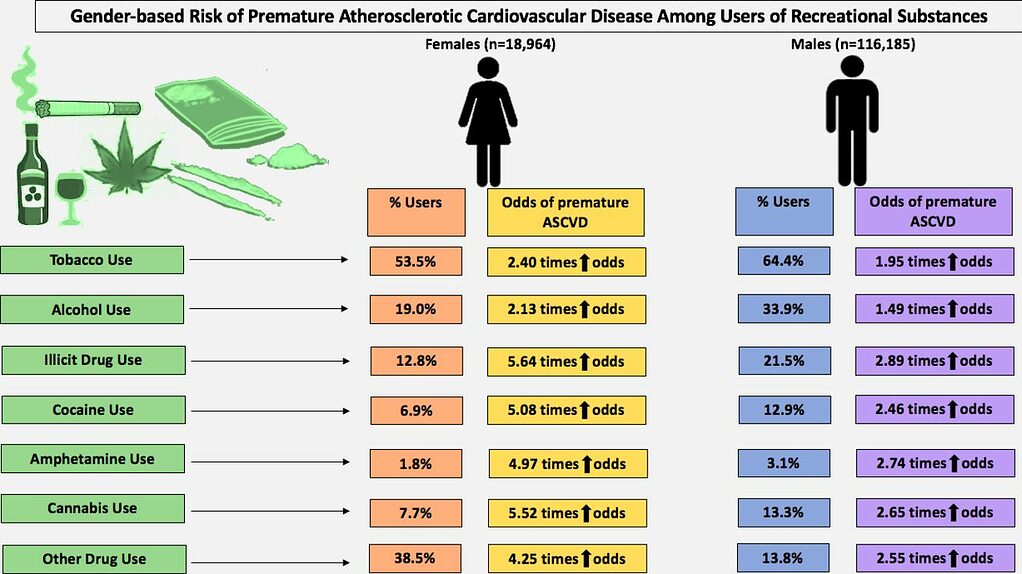By Saadia Aslam
Despite an upsurge in the incidence of atherosclerotic cardiovascular diseases (ASCVD) among young adults, the attributable risk of recreational substance use among young patients has been incompletely evaluated.
In a cross-sectional analysis using the 2014–2015 nationwide Veterans Affairs Healthcare database and the Veterans with premature AtheroscLerosis (VITAL) registry, patients were categorised as having premature, extremely premature or non-premature ASCVD. Premature ASCVD was defined as having first ASCVD event at age <55 years for men and <65 years for women.
Extremely premature was defined as having first ASCVD event at age <40 years while non-premature ASCVD was defined as having first ASCVD event at age ≥55 years for men and ≥65 years for women.

Results Compared with patients with non-premature ASCVD, patients with premature ASCVD had a higher use of tobacco (62.9% vs 40.6%), alcohol (31.8% vs 14.8%), cocaine (12.9% vs 2.5%), amphetamine (2.9% vs 0.5%) and cannabis (12.5% vs 2.7%) (p<0.01 for all comparisons).
In adjusted models, the use of tobacco (OR 1.97, 95% CI 1.94 to 2.00), alcohol (OR 1.50, 95% CI 1.47 to 1.52), cocaine (OR 2.44, 95% CI 2.38 to 2.50), amphetamine (OR 2.74, 95% CI 2.62 to 2.87), cannabis (OR 2.65, 95% CI 2.59 to 2.71) and other drugs (OR 2.53, 95% CI 2.47 to 2.59) was independently associated with premature ASCVD.
Gender interactions with substance use were significant (p-interaction <0.05), with recreational substance use and premature ASCVD showing stronger associations among women than in men with premature ASCVD.
All subgroups of recreational substances were independently associated with a higher likelihood of premature and extremely premature ASCVD. Recreational substance use confers a greater magnitude of risk for premature ASCVD among women.

